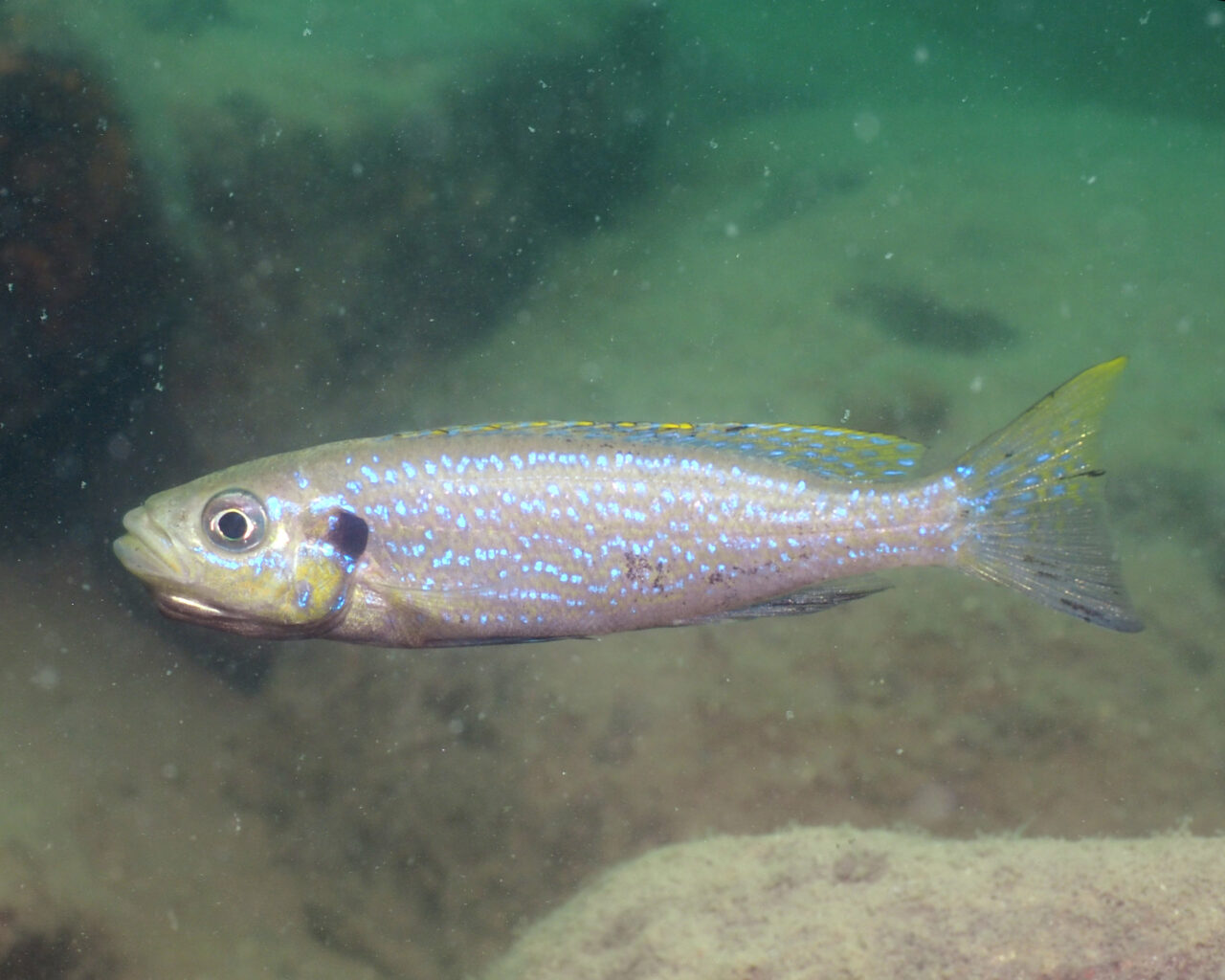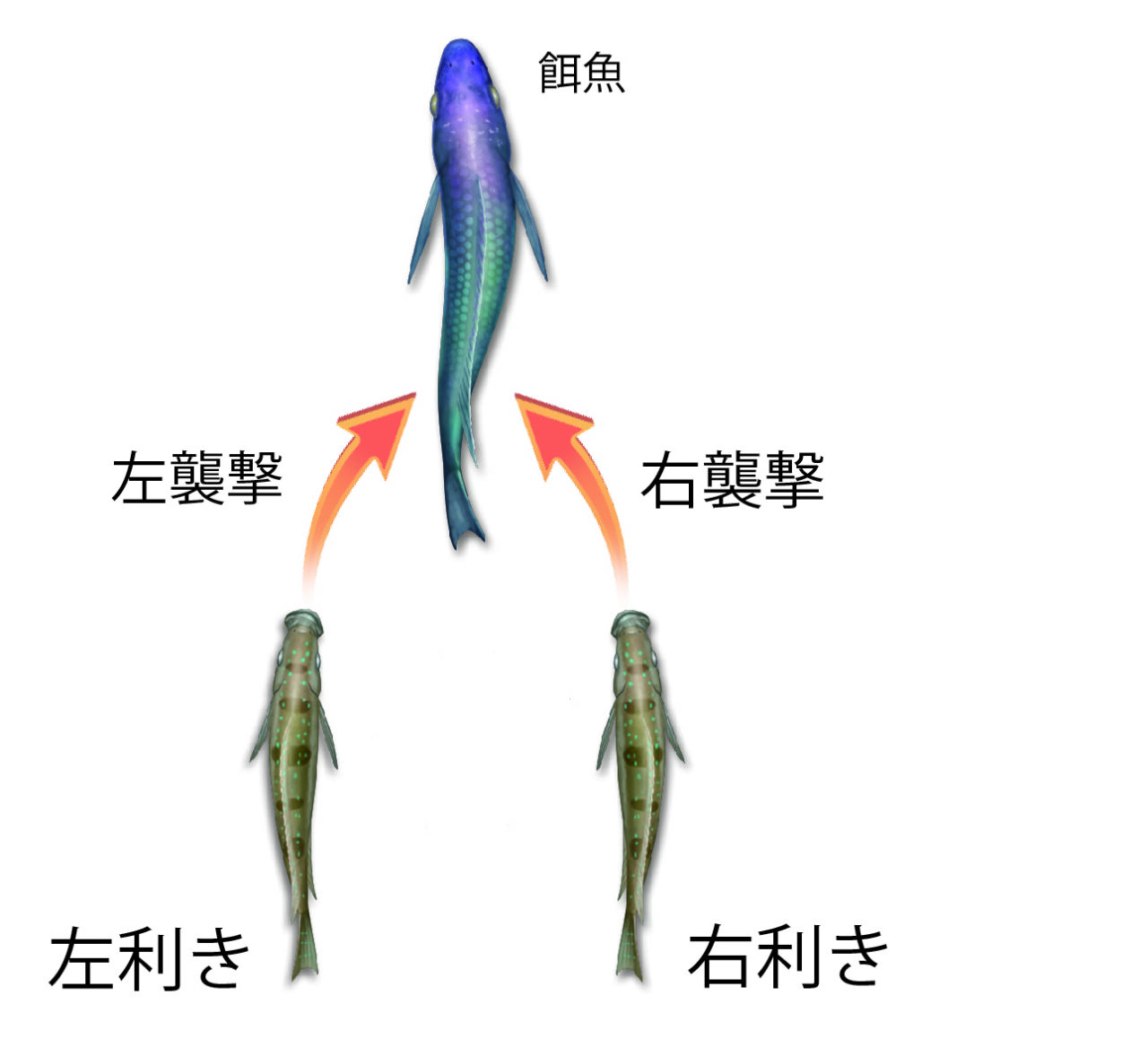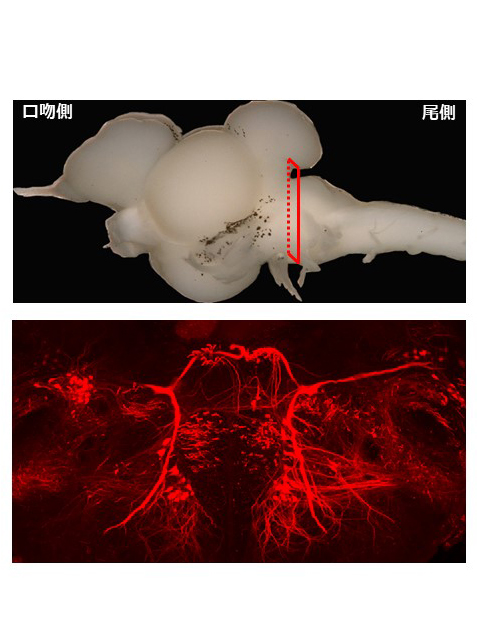TAKEUCHI, YuichiAssociate Professor
Righty and lefty, as typified by the dominant hand-use in humans, are actually phenomena found in various animals. It is believed that having a dominant hand maximizes locomotor ability and provides an advantage for survival. However, the differences in the nervous systems between righty and lefty, the developmental process of dominance, what genes and molecules regulate dominance, and when it was established evolutionarily still remain essential mysteries. Using African scale-eating cichlids, which are known for their pronounced handedness, I am investigating the mechanisms governing laterality from multiple approaches, including neuroscience, genomics, behavior, ecology, and evolution.
 Figure 1. Left handed in my daughter. We cannot draw accurately and quickly without using the dominant hand.
Figure 1. Left handed in my daughter. We cannot draw accurately and quickly without using the dominant hand.

Figure 2. Scale-eating cichlid in Lake Tanganyika
 Figure 3. Lefty fish can successfully attack only the left side of their prey and have their mouths bent rightward, and vice versa for righty fish.
Figure 3. Lefty fish can successfully attack only the left side of their prey and have their mouths bent rightward, and vice versa for righty fish.
 Figure 4. The scale-eating fish brain (top), this brain cleared and labeled with a neural tracer, reticulospinal neurons in the hindbrain (bottom).
Figure 4. The scale-eating fish brain (top), this brain cleared and labeled with a neural tracer, reticulospinal neurons in the hindbrain (bottom).
References
Developmental process of a pronounced laterality in the scale-eating cichlid fish Perissodus microlepis in Lake Tanganyika. Takeuchi Y. Zool. Sci. 40(2):160-167 (2023). DOI: 10.2108/zs220078
Experience-dependent learning of behavioral laterality in the scale-eating cichlid Perissodus microlepis occurs during the early developmental stage. Takeuchi Y., Higuchi Y., Ikeya K., Tagami M., Oda Y. Sci. Rep. 12: 723. (2022) DOI: 10.1038/s41598-021-04588-8
Specialized movement and laterality of fin-biting behaviour in Genyochromis mento in Lake Malawi. Takeuchi Y., Hata H., Maruyama A., Yamada T., Nishikaw T., Fukui M., Zatha R., Rusuwa B., Oda Y. J. Exp. Biol. 222: jeb191676. (2019) DOI: 10.1242/jeb.191676
Lateralized expression of left-right axis formation genes is shared by adult brains of lefty and righty scale-eating cichlids. Takeuchi Y., Ishikawa A., Oda Y., Kitano J. Comp. Biochem. Physiol. D. 28: 99-106. (2018) DOI: 10.1016/j.cbd.2018.07.002
Lateralized scale-eating behaviour of cichlid is acquired by learning to use the naturally stronger side. Takeuchi Y., Oda Y. Sci. Rep. 7: 8984. (2017) DOI: 10.1038/s41598-017-09342-7
Faculty
Faculty of Science
Department of Biological Sciences
Behavioral Neurobiology
Grad School
Graduate School of Life Science
Division of Life Science
Biosystems Science Course
Contact Information
Faculty of Science, Building #5 5-913
Email: ytake ![[atmark]](https://www2.sci.hokudai.ac.jp/dept/bio/wp/wp-content/themes/sci-bio_2407/img/atmark.png) sci.hokudai.ac.jp
sci.hokudai.ac.jp
